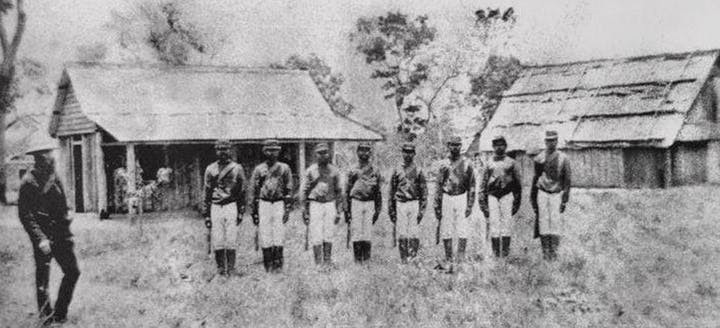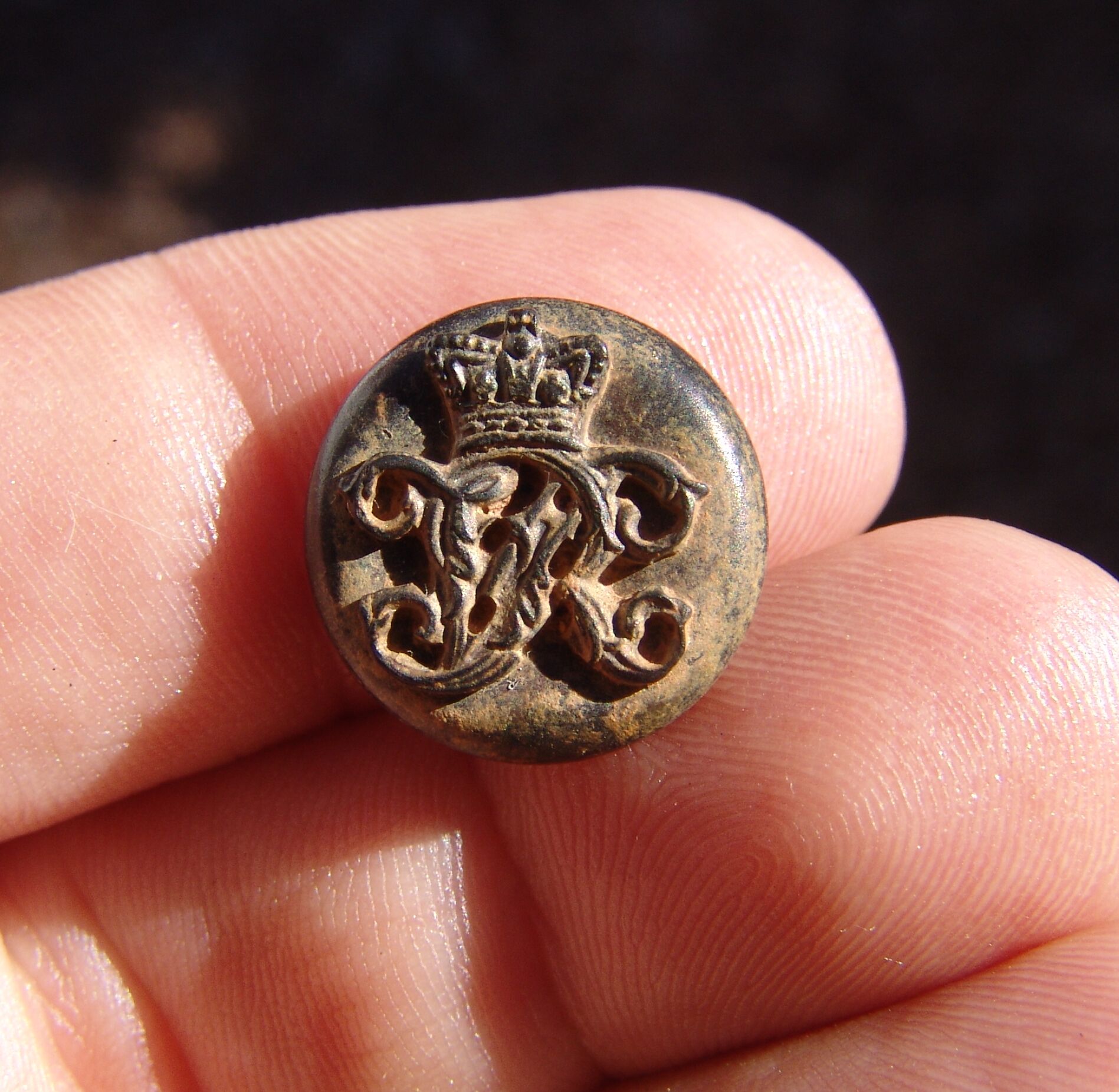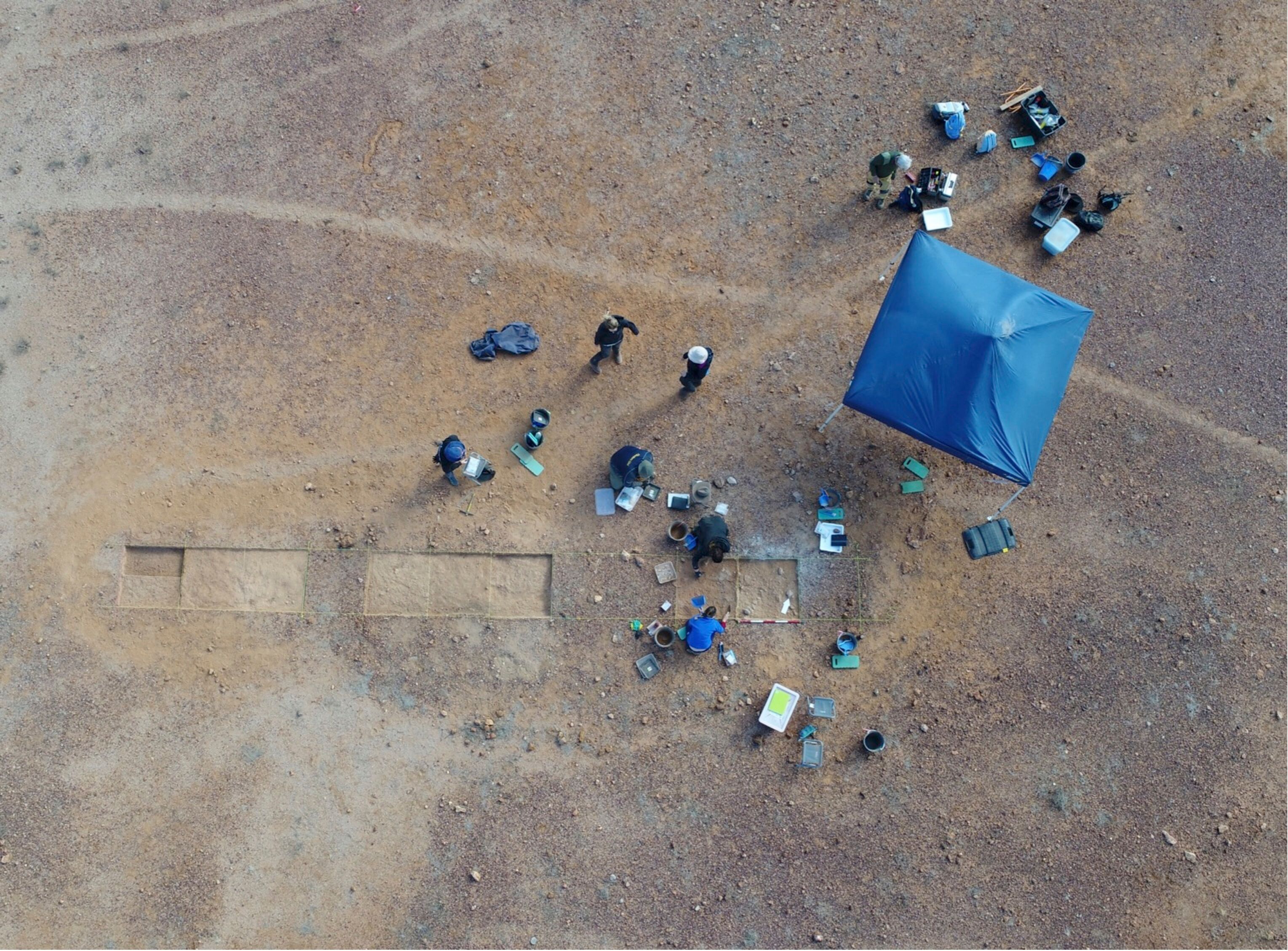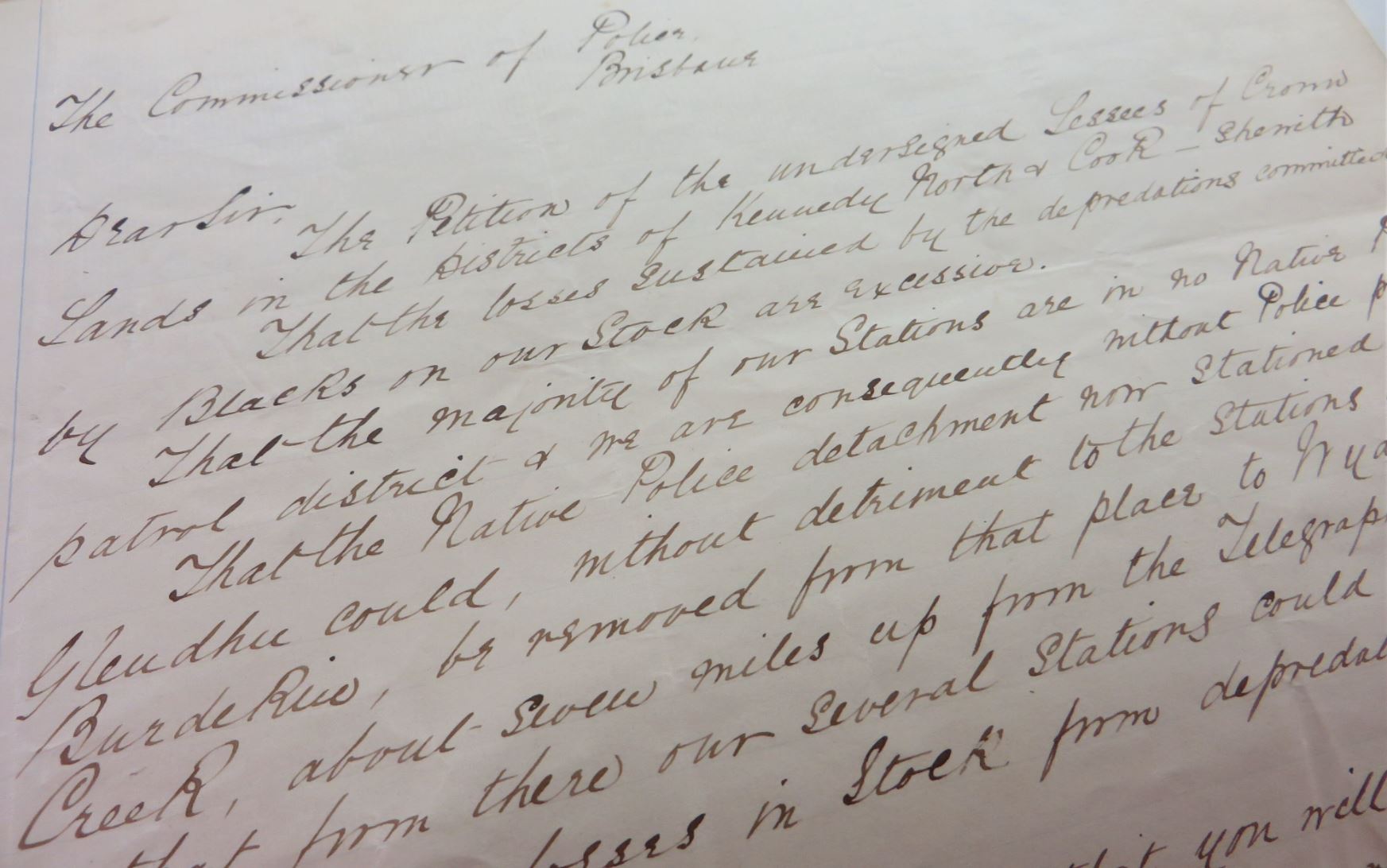
The little known history of frontier conflicts and the Native Mounted Police force in Queensland can now be told.
The expansive ‘Frontier Conflict and the Native Mounted Police in Queensland Database’, collated by Flinders University archaeologist Associate Professor Heather Burke and colleagues during a far-reaching Australian Research Council-funded project, will be launched at Queensland Museum on 9 December.
It includes more than 11,000 documents about 200 Native Mounted Police camps, 12,000 artefacts, 400 officers, 850 troopers and 1800 frontier conflict events across Queensland through the 19th century.
The launch of the database represents the culmination of Associate Professor Burke and team’s four-year $765,000 ARC Discovery Project grant – one of the largest awarded to Flinders University in recent years.

She was able to retrace the lives of remote Australia’s Native Mounted Police by locating some of the regular camp sites dotted in some of Queensland’s most remote locations during colonial times.
“From historical records we know of nearly 200 Native Police camp sites across Queensland and now have found 17 of them,” Associate Professor Burke says, noting that most of the camp sites were located well away from towns, especially in southwestern Queensland.
As lead investigator, Associate Professor Burke worked with Flinders adjunct Dr Lynley Wallis, a senior researcher at the University of Notre Dame in Broome, and Professor Bryce Barker from the University of Southern Queensland, to piece together evidence of how the Indigenous and European early police force operated in Queensland before it became a state. Their work also examines this organisation’s reputation for strongly defending pastoralist pioneers – which includes shootings of Indigenous people.

“The first systematic archaeological study of the Queensland Native Mounted Police focuses on material evidence for the activities, living and working conditions of Aboriginal troopers, the relationships between them and European officers, and the oral histories of conflict held by Aboriginal and non-Aboriginal people,” Associate Professor Burke says.
“By combining material, oral and historical evidence from a range of sites across central and northern Queensland, we can understand more fully the labour, lives and legacies of the Native Police.
“It provides an alternative lens through which to understand the nature of frontier conflict, initiate new understandings of the Aboriginal and settler experience and contribute to global studies of Indigenous responses to colonialism.”
The launch ceremony at the Queensland Museum in Brisbane will feature a talk by Dr Fiona Foley, a renowned Badtjala artist from Fraser Island who has created numerous artworks dealing with frontier conflict.
After the launch the database will become accessible to the public at www.frontierconflict.org


